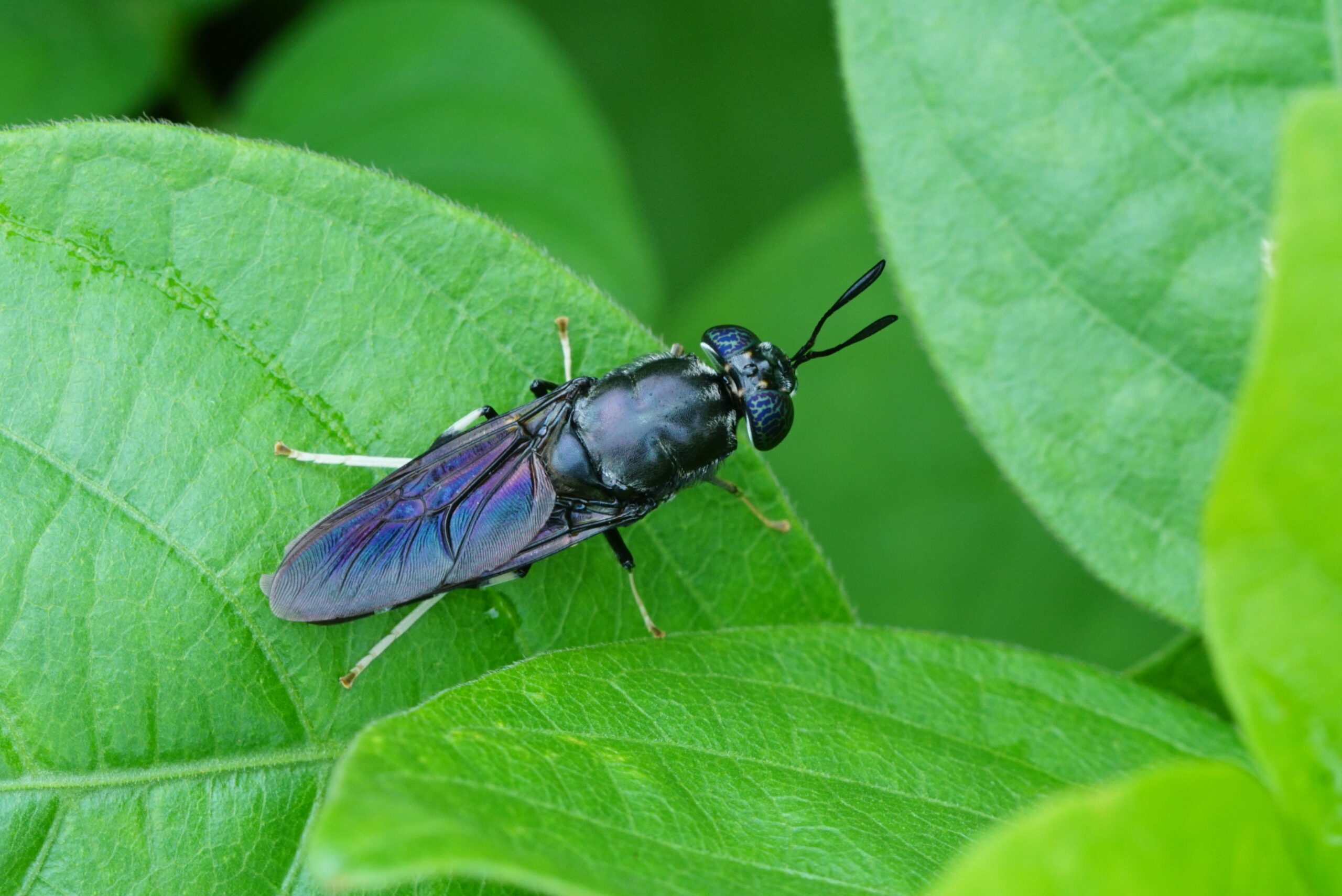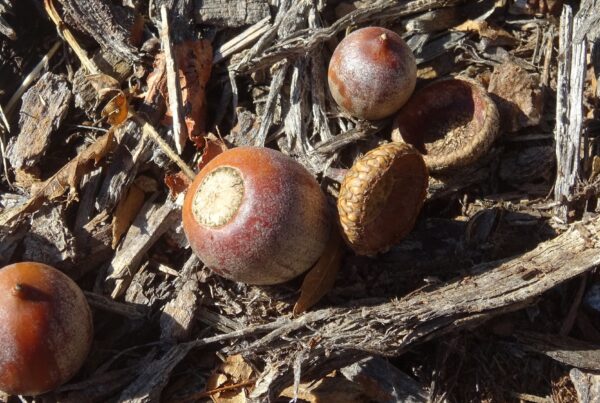There is a lot of waste involved in the ranching business, and not the kind that deals with a budget. Part of raising livestock is dealing with their leavings – that’s just the way it is.
Researchers on a new project funded by the U.S. Department of Agriculture are looking into an application for manure, however. It involves using black soldier flies to convert the animal waste into edible protein.
Jeff Tomberlin, director of the Center for Environmental Sustainability Through Insect Farming, and a research fellow at the Texas A&M University AgriLife Extension service, spoke to Texas Standard about the potential benefits of the project. Listen to the interview above or read the transcript below.
This transcript has been edited lightly for clarity:
Texas Standard: You’re working on a project investigating the possibilities of using livestock manure as a resource for producers. How exactly might that work?
Jeff Tomberlin: So what we’re doing is we’re really trying to latch on to what nature already does, and that’s recycle waste. And what we’re wanting to do is use a particular insect to recycle the organic waste produced by livestock and generate protein and fertilizer. So take something of minimal value and turn it into something of value for the producer.
Well, now, what kind of nutritional benefits are we talking about here? Is it the manure itself or something that the manure attracts? Or could you say more about that?
Sure. So, I mean, obviously, there are a lot of insects that colonize animal manure, and many of them are not considered beneficial. But there is one insect in particular that I’ve been studying for over 25 years that now globally is being mass produced as a protein source that can be used as a feed for various livestock: poultry, aquaculture, even pets and swine. And this insect’s the black soldier fly.
And this insect is very good at recycling animal manure. And what we’re trying to do is industrialize it so we could take the animal manure and in about seven days convert it to a high protein/high fat insect that can then be formulated as a feed. And what’s really cool about the system is the residual, the material left over. It looks like coffee grounds, and that could actually be a supplement or as a fertilizer.
Wow. But I think I’m still stuck on this idea of black flies being used for animal feed Has this been done, you say?
It has. It has.
So it’s actually black soldier fly. This insect is globally distributed. It’s not a pest species and it is being mass produced today as a feeding, really. In fact, there was a big announcement in the past couple of months where Tyson Food Group is partnering with an entity out of Europe to build multiple plants in the U.S., specifically for this purpose of recycling waste to produce protein that can be used as a feed ingredient.
Okay. So now you mentioned that there are other environmental benefits, sounds like. These coffee grounds that that are left behind – say more about that.
Sure. So the insects can consume the manure. And then there’s the residual that’s left over. And that residuals often referred to as frass.
Frass is the waste of the insects. So that residual material at the end, it just looks like coffee grounds. It’s really dried up and it’s really small particles and it still has a lot of nitrogen and phosphorus and potassium in it. So it’s a really nice supplement for agriculture in terms of row crop production, etc.
You were talking about other places where this technique has been tried and is in use. Could you tell us about those places and what about the United States? I mean, is this happening in the U.S.?
It is happening in the U.S. As I’ve previously mentioned, Tyson Food Group has recently partnered with an entity out of Europe to mass produce it. But there’s other companies, such as EnviroFlight that’s out of North Carolina and Kentucky. There’s companies in Europe that are doing this, companies in Canada.
The thing that’s interesting about the black soldier flies, when I was working on this insect 25 years ago, my advisor had already invested like 20 years on this idea that many thought was just kind of outlandish. How are you going to mass produce an insect on waste at a level that would justify its production as a feed ingredient? And there are companies that can digest 100 tons of waste a day with this insect.
And the thing that’s really cool about it is the benefits aren’t just protein production or waste conversion to products of value – it’s decreasing greenhouse gas emissions, it’s reducing pathogens in the environment, etc. It’s many benefits as well.
Well, I think a lot of people would wonder, you start to introduce these black soldier flies into the environment in massive quantities. Are we not sort of perhaps tilting or somehow upsetting the ecological balance in some way?
That’s a great question. And what you have to imagine is a facility that mass produces this insect and harvests the insect, and then they process it. So it’s not being released into the environment. So the material that’s produced at the end looks like a feed.
So there are no insects being released into the environment, or they should not be released into the environment, and they should be used as a feed ingredient. So they get harvested, they get processed, they never get released.














